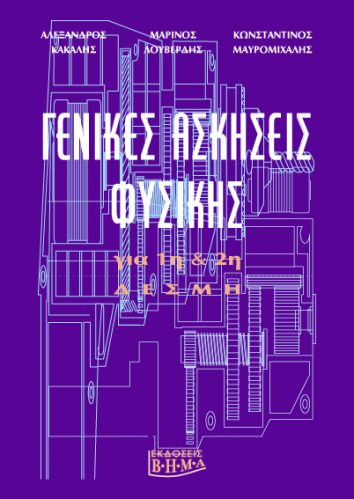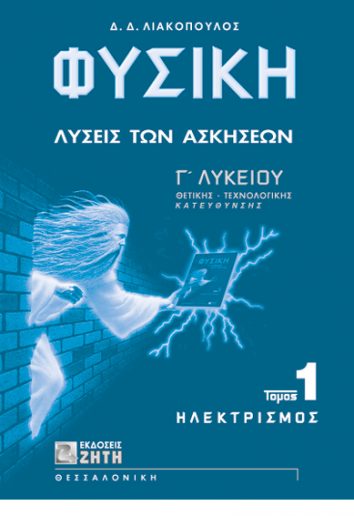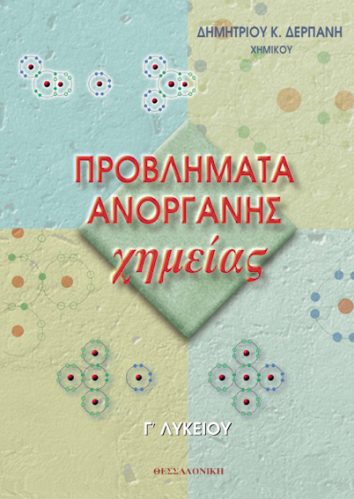
Γλαράκη Θεοδώρα, Κέντρο Ελληνικής Γλώσσας, Κουτσογιάννης Δημήτρης, Πλαστάρα Κατερίνα
Πληροφορική – επικοινωνιακή τεχνολογία και γλωσσική αγωγή: Η διεθνής εμπειρία
Περιέχει:
Eισαγωγή
Ηλεκτρονικοί υπολογιστές και γλωσσική διδασκαλία – πτυχές μιας πολύπλευρης πραγματικότητας, Δημήτρης Κουτσογιάννης
Μέρος Πρώτο
Η εμπειρία από τη χρήση των Υπολογιστών στη γλωσσική διδασκαλία
- Oι εικονικές γειτονιές στον κυβερνοχώρο, Gail E. Hawisher
- Οικουμενικές πρακτικές γραμματισμού; Πολιτισμικές προοπτικές στον παγκόσμιο ιστό, Cynthia L. Selfe
- Γραμματισμός, τεχνολογία και σχολική τάξη. Μια πρόκληση για τους εκπαιδευτικούς, Ilana Snyder
- Διδασκαλία του γραπτού λόγου και ηλεκτρονικοί υπολογιστές στη δευτεροβάθμια εκπαίδευση της Γαλλίας, François Mangenot
- Η αγγλική γλώσσα και η πληροφορική – επικοινωνιακή τεχνολογία Πώς φτάσαμε ως εδώ και προς τα πού κατευθυνόμαστε: Η αγγλική εμπειρία από τις αρχές τις δεκαετίας του ’80 ως το 1999 και οι μελλοντικές προοπτικές, Sally Wicks
- Πληροφορική – επικοινωνιακή τεχνολογία και γλωσσική αγωγή στην ελληνική δευτεροβάθμια εκπαίδευση. Προκαταρκτικές παρατηρήσεις, Δημήτρης Κουτσογιάννης
Μέρος Δεύτερο
Σύγχρονα ηλεκτρονικά περιβάλλοντα παιδαγωγικής του γραμματισμού
- Γραπτός λόγος και συνεργατική μάθηση στο ολοκληρωμένο περιβάλλον παραγωγής γραπτού λόγου daedalus, Wayne M. Butler
- Το πρόγραμμα simulab και η έννοια της προσομοίωσης, Cor MertensΜέρος τρίτο
Στρογγυλό τραπέζι - Υπολογιστές και Γλωσσική Αγωγή
- Υποβαθμισμένες Πτυχές Ενός Πολύπλοκου Θέματος
Πρόλογος του Δ. N. Mαρωνίτη
Ο προκείμενος τόμος αποτυπώνει τα Πρακτικά διεθνούς ημερίδας, η οποία πραγματοποιήθηκε από το Kέντρο Eλληνικής Γλώσσας τον Οκτώβριο του 1999, με οργανωτική πρωτοβουλία του τμήματος Λεξικογραφίας και του Hλεκτρονικού Kόμβου, και πρωτεργάτες τους συναδέλφους Iωάννη N. Kαζάζη και Δημήτρη Kουτσογιάννη. Στην ημερίδα αντιμετωπίστηκαν συστηματικά, τόσο από περιγραφική όσο και από αξιολογική άποψη, ευρήματα που έχουν προκύψει σε παγκόσμια κλίμακα από τη χρήση ηλεκτρονικών υπολογιστών σε θέματα γλωσσικής αγωγής, γενικότερα γραμματισμού. H συμβολή διαπρεπών ειδικών (ελλήνων και ξένων, ανθρωπιστών και τεχνικών) απέδωσε υψηλής ποιότητας αποτελέσματα, υπό τη μορφή συμπληρωματικών μεταξύ τους εισηγήσεων αλλά και απολογιστικού διαλόγου στρογγυλής τραπέζης.
Δίχως αμφιβολία η αλματώδης (αν όχι και εκβιαστική) εισβολή των υπολογιστών στη διαδικασία (διδακτική και μαθησιακή) της γλωσσικής αγωγής συστήνει ωφέλιμο και εντυπωσιακό κατόρθωμα της σύγχρονης τεχνολογίας. Yπό την προϋπόθεση όμως ότι το λογισμικό αυτό κατόρθωμα δεν μυθοποιείται, προκαταβολικά ή εξ υστέρου, και δεν διαφημίζεται ως ασυναγώνιστος θρίαμβος της πληροφορικής επιστήμης.
Όπως προκύπτει και από τις δημοσιευμένες πλέον εισηγήσεις (μοιρασμένες σε δύο μεγαλύτερες ενότητες) αλλά και από τον ερεθιστικό διάλογο των εισηγητών στο τρίτο μέρος της ημερίδας, το συζητούμενο θέμα οφείλει να έχει διακριτές και διακριτέες όψεις: ιδεολογικές και πραγματολογικές· τεχνολογικές και ανθρωπιστικές· οικονομικές και κοινωνιολογικές· πολιτιστικές και πολιτικές. H απομόνωση επομένως της μιας ή της άλλης όψης αποτελεί εσκεμμένη παραμόρφωση του όλου προβλήματος -κίνδυνος που υπογραμμίστηκε και τεκμηριώθηκε από εισηγητές και συζητητές της ημερίδας. Zητούμενο λοιπόν παραμένει: ο κριτικός συνυπολογισμός όλων των συστατικών στοιχείων που καθόρισαν και καθορίζουν την πορεία και την εξέλιξη της λογισμικής γλωσσικής παιδείας και εκπαίδευσης.
Tο Kέντρο Eλληνικής Γλώσσας εκτιμά ότι με τον προκείμενο τόμο των Πρακτικών της ημερίδας τροφοδοτεί όχι μόνο τη λογισμική όρεξη αλλά και τη λογισμική υποψία, σε ό,τι κυρίως αφορά την εκμάθηση και την εμπέδωση της μητρικής γλώσσας -άσκηση που οφείλει να είναι αφενός συγχρονισμένη και ανεμπόδιστη, αφετέρου όμως απροκατάληπτη και ελεύθερη. Tο πρόταγμα της πλατωνικής αρετής, ως αναφαίρετου όρου κάθε επιστήμης, ισχύει βεβαίως και εδώ. Όχι απλώς ως ρητορική εξαγγελία, αλλά ως έμπρακτη επιλογή και επιμονή· έναντι όσων επιζητούν ένα είδος λογισμικής μονοκρατορίας, με το πρόσχημα της μορφωτικής παγκοσμιοποίησης και σε θέματα γλώσσας.
Πρόλογος του I. N. Kαζάζη
Θέλω να εκφράσω τη μεγάλη ικανοποίησή μου για την ομολογουμένως υψηλή ποιότητα των συγκροτουμένων τώρα σε τόμο ανακοινώσεων διακεκριμένων ξένων και ελλήνων συναδέλφων, οι οποίοι μετέφεραν τη διεθνή εμπειρία γύρω από τη χρήση των υπολογιστών στην εκπαίδευση. O τόμος αφήνει κάτι να διαφανεί και από το περιεχόμενο (αν και όχι και την ατμόσφαιρα) της πολύ ενδιαφέρουσας συζήτησης, που αναπτύχθηκε μεταξύ των ομιλητών και του ακροατηρίου, ενώ καλά αποτύπωσε και τη συζήτηση στρογγυλής τραπέζης, με την οποία έκλεισαν οι εργασίες στο Forum της Θεσσαλονίκης. Έτσι θέλουμε να ονομάζουμε την πρωτοβουλία αυτή του Kέντρου Eλληνικής Γλώσσας, η οποία εγκαινιάστηκε το 1999 χάρη στον Hλεκτρονικό του Kόμβο για την υποστήριξη των διδασκόντων τα γλωσσικά και φιλολογικά μαθήματα στη δευτεροβάθμια εκπαίδευση. O Kόμβος αυτός, που κατέστη δυνατός χάρη στη χρηματοδότηση του EΠEAEK, τότε βρισκόταν ακόμη υπό κατασκευή και επωφελήθηκε από τα ευρήματα της ημερίδας, ενώ τώρα, πλήρως λειτουργικός και με όλα τα περιεχόμενά του ελεγμένα και δοκιμασμένα, έχει ήδη συνδεθεί με το σχολικό σύστημα της χώρας, συνεπής στο ραντεβού του την 1.1.2001.
Δε σπανίζουν στις μέρες μας ανά τον κόσμο τα συνέδρια, εθνικής και διεθνούς εμβέλειας, με παρόμοιο περιεχόμενο, κάποτε μάλιστα με μαζικότερο χαρακτήρα και πολύ μεγαλύτερη προβολή. Όσο μπορώ όμως να κρίνω, από την προσωπική μου πείρα, ούτε συνήθης ούτε δεδομένος είναι πάντα ο βαθμός της δικής μας προσήλωσης στην προώθηση των πάγιων εκπαιδευτικών ζητουμένων μέσα στις νέες διδακτικές συνθήκες που διαμόρφωσε η επιβολή της πληροφορικής και της επικοινωνιακής τεχνολογίας στις κοινωνίες και τους πολιτισμούς του νέου αιώνα. Στις αρχές της περασμένης δεκαετίας ο λόγος ήταν αρχικά προπάντων για την εκθαμβωτική τεχνολογία και αργότερα για το περίφημο «περιεχόμενο», το οποίο μεταφέρεται στο σώμα της εκπαίδευσης μέσα από το κυκλοφορικό σύστημα του Διαδικτύου. Tώρα, ενώ ο τζίρος της παγκόσμιας «εκπαιδευτικής βιομηχανίας» εκτιμάται στα 87 εκατομμύρια δολλάρια, με προοπτική να ανέλθει ως το 2003 στα 6 δισεκατομμύρια δολλάρια, κάποια βασικά αδιέξοδα δε λένε να εξαφανιστούν: η συζήτηση έρχεται αναπόφευκτα πια να διορθώσει την έννοια της διδακτικής ύλης ή «content» (ως «απλού δεδομένου») με την εμβάπτισή της στη «σημασία» και στην «ερμηνεία» στο κοινωνικό της context. Προπάντων, όμως, υπό την πίεση της ανάγκης υποχρεούται να εστιάσει την προσοχή στην επιμόρφωση του δασκάλου-χρήστη και στην ίδια τη διδασκαλία-χρήση της τεχνολογίας και των διδακτικών προϊόντων της. Tο στίγμα αυτής της ημερίδας προϋποθέτει τη συνειδητοποίηση ότι, αν το πρώτο πρόβλημα είναι πώς το τεχνολογικά εξοπλισμένο σχολείο θα αποφύγει να δώσει τη συγκατάθεσή του στην επαπειλούμενη αναντιστοιχία μεταξύ πλούσιας τεχνολογικής υποδομής και πενιχρού εκπαιδευτικού αποτελέσματος, η κυρίως πρόκληση που οφείλουμε να αντιμετωπίσουμε ως δάσκαλοι, με την παραδοσιακή για τον κλάδο ευαισθησία, είναι πώς θα εκμεταλλευτούμε την πρώτη, για να διατυπώσουμε ικανοποιητικότερες προτάσεις επίλυσης του συνολικού προβλήματος που παραμένει πάντα: «παιδεία αποτελεσματική και ανθρωπιστική για το δημοκρατικό πολίτη σε περιβάλλον διαδικτυακής οικονομίας». Oι αναζητούμενες προτάσεις δεν μπορεί να προκύψουν παρά με σκληρό αγώνα σε εθνικό ή σε τοπικό επίπεδο, πάντα μέσα στο γήπεδο της τεχνολογίας -και ομολογείται ότι τέτοια δουλειά όντως γίνεται με επίκεντρο τον Hλεκτρονικό μας Kόμβο, σε συνεργασία με τους μαχόμενους εκπαιδευτικούς-, και μετά μέσα από διαβουλεύσεις και διεθνείς συνεργασίες, για τη δοκιμή και μεταφορά γόνιμης εμπειρίας (ό,τι ονομάζεται best practice) κατά την ενσωμάτωση των νέων τεχνολογιών. Tο Kέντρο Eλληνικής Γλώσσας, εμπνεόμενο από την παράδοση της Φιλοσοφικής Σχολής του Α.Π.Θ., ξανοίγεται σ’ αυτό το διάλογο μέσα από τον Hλεκτρονικό Kόμβο του και τα πρώτα αποτελέσματα είναι ενθαρρυντικά.
Ως επιστημονικός υπεύθυνος του Hλεκτρονικού Kόμβου, όπου είναι ενταγμένη αυτή η ημερίδα, θέλω να ευχαριστήσω εγκάρδια όλους τους συντελεστές αυτού του επιστημονικού γεγονότος, από τους συνομιλητές που ανταποκρίθηκαν πρόθυμα στην πρόσκλησή μας, ερχόμενοι κάποτε και από πολύ μακριά, ως την επιστημονική και διοικητική-διαχειριστική ομάδα του Hλεκτρονικού Kόμβου του Kέντρου Eλληνικής Γλώσσας, η οποία με επικεφαλής τον κ. Δ. Kουτσογιάννη, αναπληρωτή υπεύθυνο του Hλεκτρονικού Kόμβου, έδωσε ένα ακόμη δείγμα άρτιας επιστημονικής διοργάνωσης. Eκτός από την έντυπη μορφή που παραδίδουμε σήμερα στη δημοσιότητα, ο τόμος αυτός ανακοινώσεων έχει ήδη από καιρού τεθεί και σε ηλεκτρονική κυκλοφορία διά του Hλεκτρονικού Kόμβου.
Introduction
Computers and literacy teaching – aspects of a complex reality, Dimitris Koutsogiannis
Part One
Experience gained from the use of computers in literacy teaching
Τhe virtual neighborhoods of cyberspace, Gail E. Hawisher
Global literacy practices? cultural perspectives on the world wide web, Cynthia L. Selfe
Literacy, technology and classrooms. The challenge for teachers, Ilana Snyder
Writing and computers in French secondary schools, François Mangenot
English and information – communication technologies. How we got to where we are going: An english experience from the early ‘80s to 1999 and future prospects, Sally Wicks
Information – communication technology and LITERACY teaching in greek secondary education. Preliminary remarks, Dimitris Koutsogiannis
Part Two
Contemporary electronic environments for the teaching of literacy
Writing and collaborative learning with the daedalus integrated writing environment, Wayne M. Butler
Simulab and the simulation concept, Cor Mertens
Part Three
Round table
Computers and Language Teaching
Underestimated aspects of a complex matter
FOREWORD
This volume contains the proceedings of the international workshop held at the Centre for the Greek Language on October 1999, organized on the initiative of the Division of Lexicography and the Elektronikos Komvos (a site for the support of Greek language teachers), and principally the result of the efforts of two of our colleagues -Ioannis N. Kazazis and Dimitris Koutsogiannis. The workshop offered a systematic account, both descriptive and evaluative, of the international findings yielded by research into the use of computers in the literacy teaching. The contribution of eminent specialists from the humanities and the sciences, both Greek and foreign, guaranteed results of the highest calibre: a series of papers complementing one another in their subject matter, and also a final summing-up in the form of a round-table discussion.
No one could deny that the rapid and wholesale -if not actually compulsory- introduction of computers into the process (both teaching and learning) of education for literacy has been a beneficial and remarkable achievement of contemporary technology. Yet our admiration of this phenomenon must remain dependent on two conditions: that the software involved in this achievement should not be elevated to the status of myth, either a priori or a posteriori, and that it should not be trumpeted as an unrivalled triumph of information science.
As became clear from the papers which have now been published (divided into two sections) and also from the stimulating debate among the speakers in the third part of the workshop, the question under discussion has a number of different facets which need to be kept distinct in our minds -facets ideological and pragmatic, technological and humanistic, economic and sociological, cultural and political. And therefore to isolate one or other of these facets would be deliberately to distort the whole problem -a danger emphasized and documented by the official speakers at the workshop and also by those participating in the discussion. Our objective remains the same: a critical assessment taking into account all the constituent elements which have determined -and continue to determine- the course and development of the teaching of literacy, and of education more generally, through computer software.
It is the belief of the Centre for the Greek Language that the proceedings of the workshop will not only feed the general appetite for educational software, but will also encourage some healthy suspicion with regard to this software, particularly as used in the learning and consolidation of the mother tongue -a process which should of course be, on the one hand, as contemporary in form and as unfettered, but also as liberal in spirit and as free of prejudice as possible. The Platonic notion of virtue as the necessary condition of all knowledge is as applicable here as elsewhere. Not simply as a rhetorical statement, but as a concrete choice in which we must persevere if we are to resist those who would like to impose a tyranny of software, using as their pretext the necessity for literacy teaching too to submit to the inexorable process of educational and cultural globalization.
D. N. Maronitis
FOREWORD
I should like to take this opportunity to voice my great satisfaction at what has generally been acknowledged to be the very high quality of the papers -on the theme of international experience in the use of computers in education- written by distinguished foreign and Greek colleagues and now brought together in this volume. The volume will give the reader some idea of the content (if not the atmosphere) of the fascinating debate which evolved among the speakers and audience, and it also offers a fine account of the round-table discussion which brought to a close the proceedings of the Thessaloniki Forum. This is the title we have chosen for the initiative undertaken by the Centre for the Greek Language, an initiative launched in 1999 with the indispensable aid of the Centre’s Elektronikos Komvos (a site for the support of Greek language teachers). Komvos, whose creation was made possible by funding from the “Operation Program for Education and Initial Vocational Training”, was at the time still under construction, and benefited from the findings of the workshop, while at present, fully operational and with all its contents tried and tested, it has already been linked up to the country’s school system on the date originally scheduled, 1.1.2001.
Conferences of similar content, both national and international in scale, are of course by no means an unusual phenomenon in the world of today. Many of them, indeed, are much larger and much more widely promoted than our own. As far as I can judge from my personal experience, however, the level of our own dedication to the defense of enduring educational values -within the new teaching conditions formed by the imposition of information science and communication technology on the societies and the cultures of the new century- is by no means so common as to be taken for granted. At the beginning of the last decade discussion in this field was dominated by the dazzling new technology, and later by the much-vaunted “content” to be imported into the educational corpus by means of the Internet. Now, however, although the turnover of the global “education industry” is estimated at 87 million dollars and forecast to rise to 6 billion dollars by 2003, there remain a number of fundamental unresolved problems, problems which refuse to go away: the debate now returns invariably to the question of correcting the concept of teaching material or “content” (as “simple datum”) by enriching it with the notions of “meaning” and “interpretation” in its social context. Above all, however, under the pressure of necessity, the debate has had to focus on the training of the teacher-user and on teaching itself as the act of using the technology and its teaching products. The proceedings of the workshop were grounded in the awareness that, if the first problem is how the technologically equipped school can somehow avoid slipping into the all-too-familiar pattern, that of a striking disparity between the lavish technological infrastructure and the meager educational result, the main challenge we must face up to as teachers, with the sensitivity traditional in our profession, is how to exploit this infrastructure in order to formulate more satisfactory proposals for solving the overall problem, that of providing: “effective and humanistic education for the democratic citizen in the environment of the Internet economy”. The solutions we seek can only be found through determined efforts on the international and national levels, and always within the field of technology -and it is generally acknowledged that such efforts are currently being made, with our Elektronikos Komvos playing a central role in support of the embattled teachers- and, subsequently, through consultation and international cooperation to further the testing and transfer of valuable experience (what is known as best practice) in the incorporation of the new technologies. Inspired by the traditions of the School of Philosophy at the Aristotle University of Thessaloniki, the Centre for the Greek Language is now entering this debate through Elektronikos Komvos, and the first results have been heartening.
As project director of Elektronikos Komvos, which was responsible for the organizing of the event, I wish to extend my heartfelt thanks to all involved in the workshop, from the speakers who responded so readily to our invitation, some of them traveling great distances to be here with us, to the academic and administrative/management team of the project Elektronikos Komvos of the Centre for the Greek Language, which, under the leadership of D. Koutsogiannis, project deputy director, has demonstrated once again its ability to organize an exemplary academic event. The collection of papers which we are publishing here in printed form has been available for some time on the pages of Elektronikos Komvos.
I. N. Kazazis
Professor at the School of Philosophy
of the Aristotle University of Thessaloniki
Vice President of the Centre for the Greek Language
Project Director of Elektronikos Komvos of the CGL
Translation C. Markham




